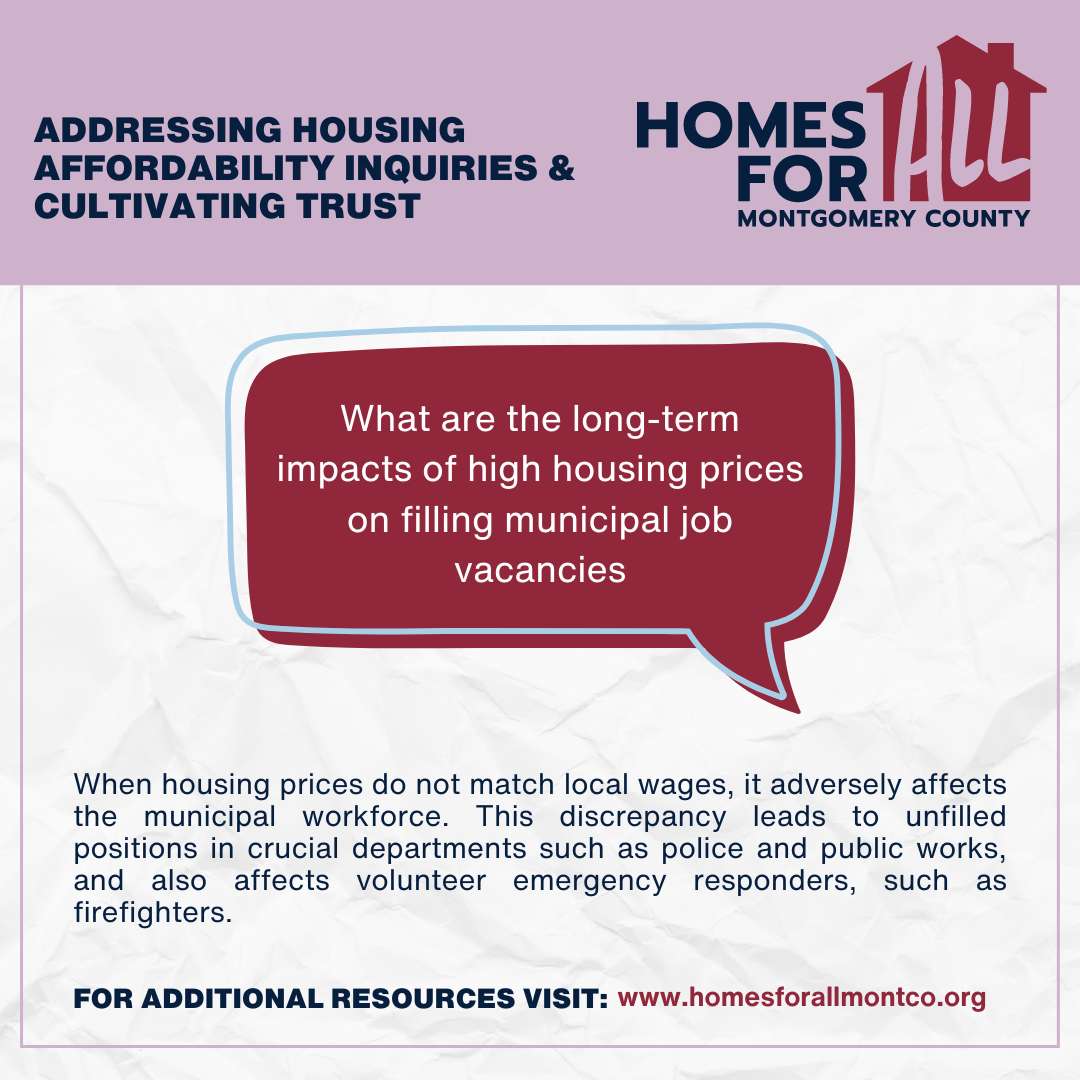Municipal Leaders

In Montgomery County, the cost of housing has surged beyond what many residents can reasonably afford. To put this into perspective, consider a 2-bedroom apartment: for an individual to avoid excessive rent burden, they would need to work either 52 hours a week at a minimum wage of $18.75 per hour, or 40 hours a week at $24 per hour, based on a fair market rate rental of $1,266 per month. However, the reality is starkly different. The average rate for a 2-bedroom apartment in Montgomery County currently stands at $1,855, far exceeding the fair market rate.
This disparity means that a significant portion of Montgomery County residents are spending more than 30% of their income on housing costs, leaving them financially strained and vulnerable. With housing costs consuming such a large portion of their income, individuals and families are forced to make sacrifices in other areas, such as healthcare, education, or savings for the future.
The need for more affordable housing options in Montgomery County is urgent. Without access to housing that aligns with their income levels, many residents face the constant threat of housing instability, eviction, or homelessness. Addressing this issue requires concerted efforts from both public and private sectors to increase the availability of affordable housing options and ensure that all residents have access to safe, decent, and affordable homes.
As municipal leaders you can use these strategies to amplify the Homes For All message and combat misinformation and discriminatory opinions.
- Reshare and post about community/municipal events to encourage greater participation.
- Respond to misinformation with the facts and point neighbors to the source of truth.
- Speak out about your support of addressing housing affordability in Montgomery County and creating more high-quality, affordable homes in your communities.
- Share positive news from your community
Sample Social Media Posts:


Combat Misinformation:
In order to have thriving and vibrant communities, we need to consider what enables that to happen: high-quality homes with close proximity to jobs, services, amenities, and access to transportation, healthcare and quality schools.
As municipal leaders with control over zoning and land development, you hold a lot of power in shaping your community. Building an inclusive municipality with homes at all price points and places for low and moderate income households to thrive is crucial for stable communities, involved citizens, and overall economic stability.
If a family can only afford a home in a location that is far from essential services with limited economic opportunity, how can we expect that family to thrive? The location of a home and the businesses and services that are nearby have a lot of influence over a family's well-being. When that home is out of reach, it affects school performance, involvement in community activities, and workplace productivity.
What's Next:
Recognizing community concerns is crucial, but equally important is guiding residents on the actionable steps that can be taken to address them. As municipal leaders, it is essential to provide clarity on the mechanics of specific projects and investments, ensuring residents understand their implications and potential outcomes.
For municipal leaders, it's imperative to approach community changes through a collaborative and equitable process. This ensures that all stakeholders have a voice in shaping projects to benefit everyone involved. We must consider who is currently represented at the table and actively seek out input from those who may not be present. How can we enhance your understanding of the project, and how can you assist us in comprehending your neighborhood's needs better?
Our aim is to uphold transparency, maintain open lines of communication, and foster accountability throughout the planning and execution phases. It's essential that all individuals with a vested interest in the community are informed about project plans and timelines.


